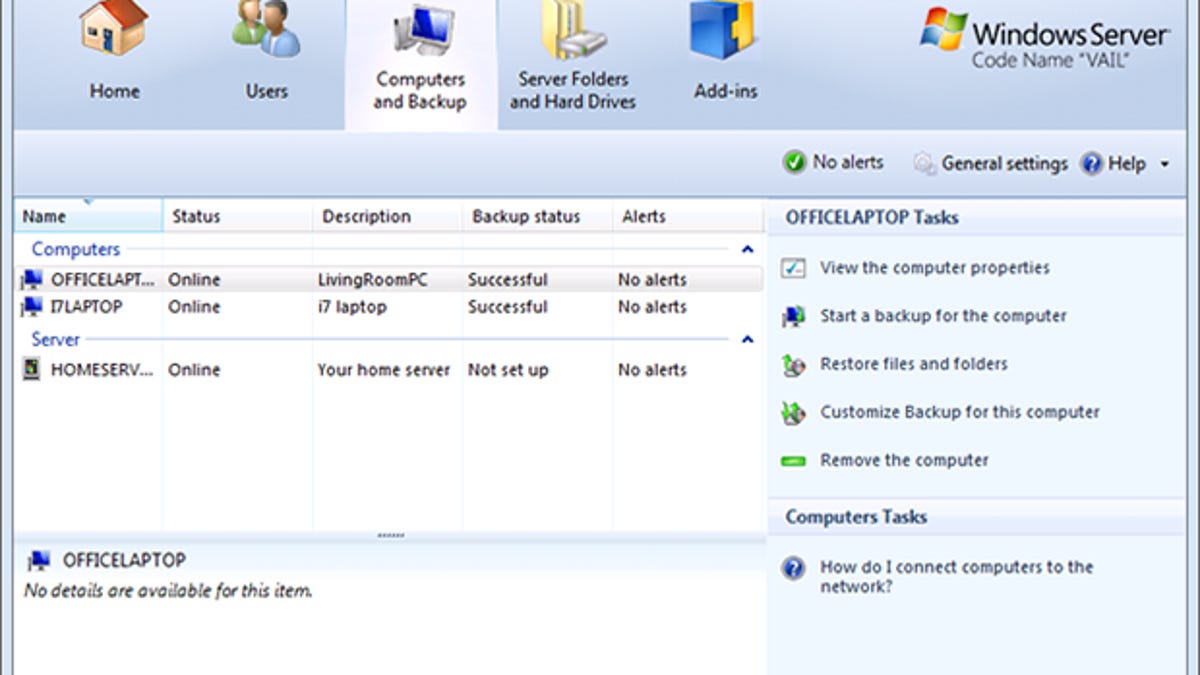Windows Home Server to lose drive pooling
The next major version of Windows Home Server will arrive without a popular feature that let users pool together storage drives. The company says the decision was consumer-driven.

In the world of software, features come and go, though most of the time it's in the direction of growth.
Such has been the story of Windows Home Server--that is, up until now. Microsoft has announced that the next major version of the software, codenamed "Vail," will do away with what has arguably been one of the most user-friendly features: the drive extender.
This feature would let users take multiple hard drives of various sizes--like the ones that people might have left from old computers, or something they got at a Black Friday sale--and let them pool those drives together to add to a total amount of storage. The feature could be a lifesaver for people who wanted to expand the storage on a computer without having to mess with special third-party software, or complicated back-up solutions.
According to a post on the Windows Home Server blog, the feature will be removed from beta versions of WHS, Windows Small Business Server 2011 Essentials, and Windows Storage Server 2008 R2 Essentials beginning early next year. The reasoning for the change was that hard drive size has increased to the point where 1-terabyte-or-higher hard drives can be had on the cheap, and are readily available at the time users are buying new hardware they wish to turn into home servers:
"Since customers looking to buy Windows Home Server solutions from OEMs will now have the ability to include larger drives, this will reduce the need for Drive Extender functionality," Michael Leworthy, Micosoft's Windows Server senior technical product manager, said in the post.
Leworthy also noted that the decision had been driven by customers.
"When weighing up the future direction of storage in the consumer and SMB market, the team felt the Drive Extender technology was not meeting our customer needs," he said.
Shortly after writing that post, which was met with some 140 (mostly angry) user comments, Leworthy followed up, saying that the decision had been "incredibly hard," but that it was necessary given the development of Home Server alongside the company's Small Business Server 2011 Essentials and Windows Storage Server 2008 R2 Essentials products. "For Windows Home Server users, these areas may not seem as important. However, as our development for these products is very closely tied, a decision like this affects all three," Leworthy said.
A possible reason for the removal of the feature going forward could be tied to past difficulties with drive pooling being the culprit of data corruption. In some cases, this could lead to files that were stored on multidrive home servers being unreadable after they had been transferred there. Earlier versions of WHS had this problem, though Microsoft patched it back in 2008.

